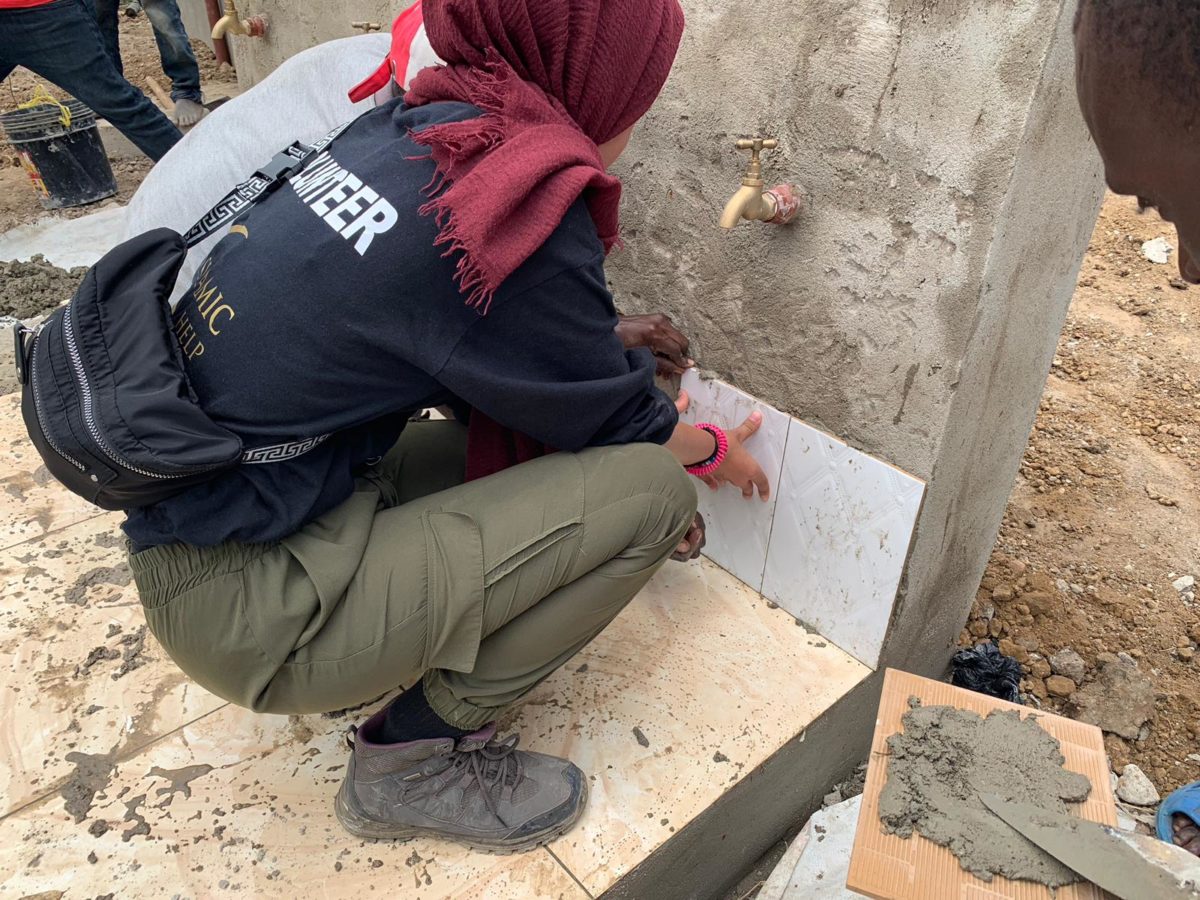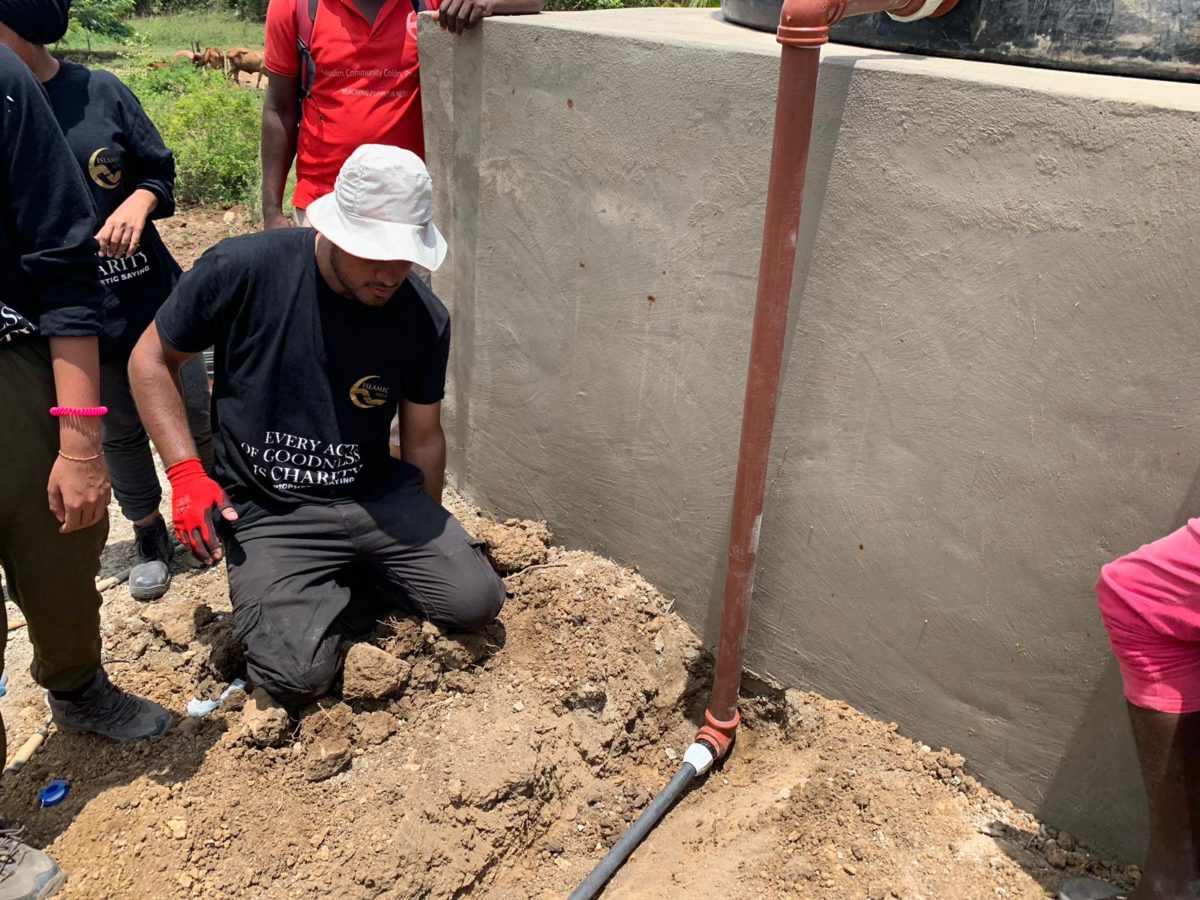Mission Possible 2018 Blog: The Small Action That Saves A Life
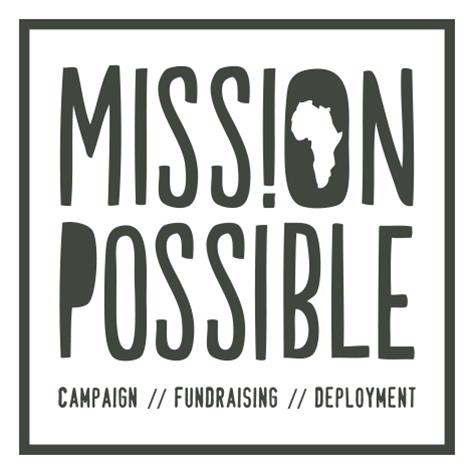
As well as helping with the construction of a water tank facility and improvements at a local school, Mission Possible volunteers on deployment in Tanzania also got an eye-opening glimpse of the limited health facilities available. They also learned how a small action can help save lives, as volunteer Aaminah Bharwani explains.
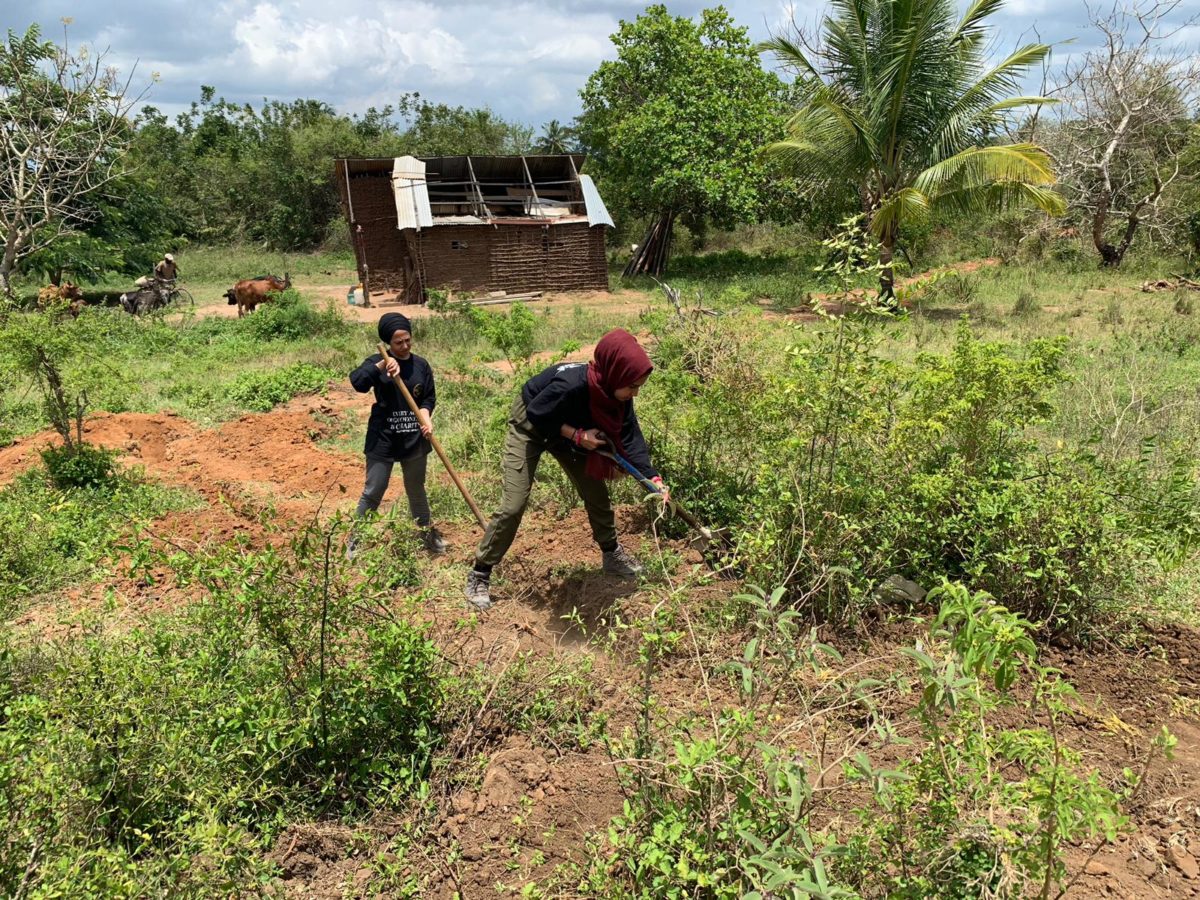
BUILDING
Yesterday we carried on with the construction at the water source by mixing the cement and filling the channel that we had dug back with mud as the pipe had been put in.
I was so shocked to see this small child going back and forth five times from the pond, which is around 30 minutes away, carrying 3 gallons of water on the bike each time. This reminded me of how I had struggled carrying one gallon on the walk (the water trek) and needed help from the children whilst pushing the bike.
I was so excited to see the progress when we came back to the village today as the project was close to being completed and the tank had been rolled up the hill and put in place. At the school, we helped plaster the walls of the toilet.
Before visiting the health centre, we attended a meeting with the district commissioner who had requested to see us. We explained all the work we had done over the past few days and what we planned on doing, and we asked for his help so that we could continue helping the people in this country.
HEALTHCARE
We then made our way to the healthcare centre, where we spoke to the doctor in charge. I was shocked to learn that people had to pay 2 dollars to be seen by a doctor, and if they didn’t have that money they were turned away.
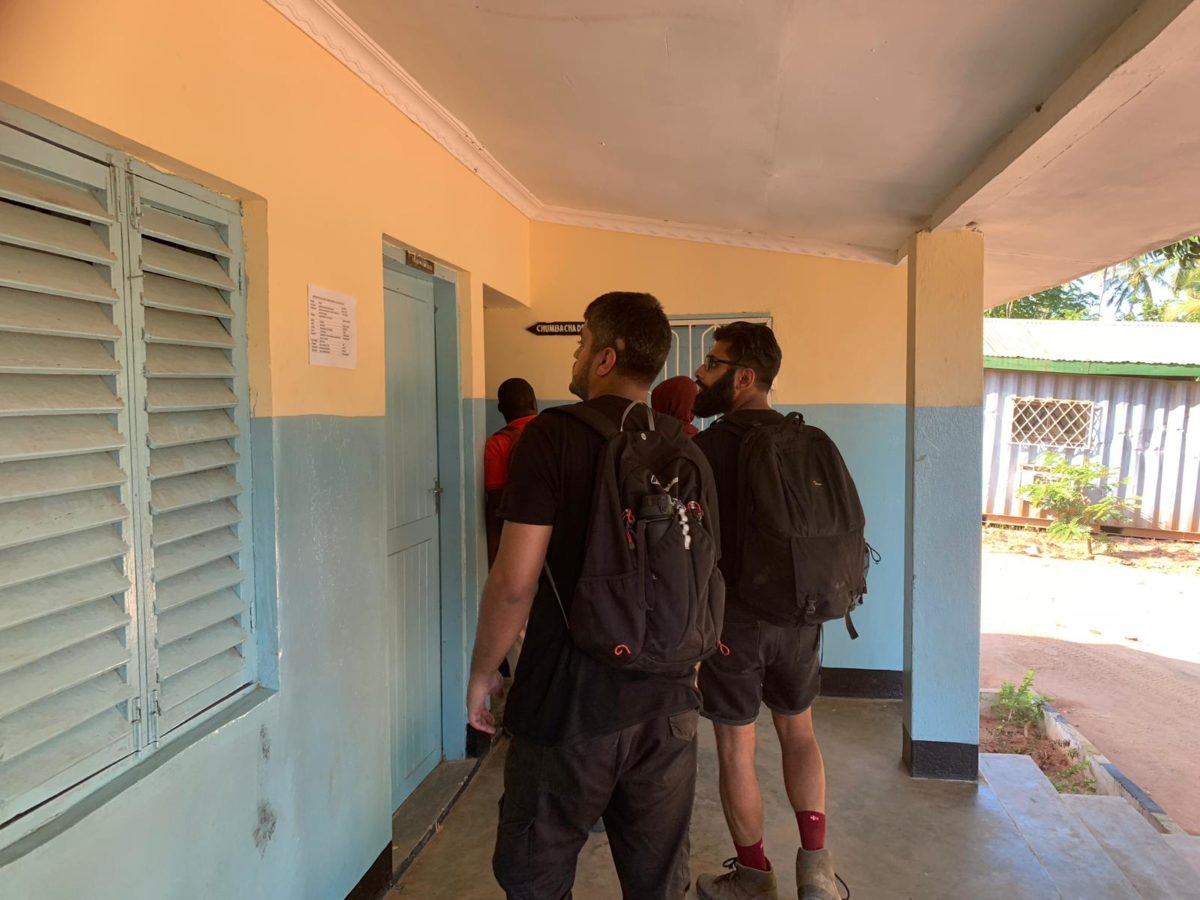
She told us the top 10 diseases of the people who were admitted to the hospital and they all had a link to the condition of the water and sanitation. She then gave us a tour of the rooms where people were staying and I was disgusted with the state of them.
They appeared unsterile and in such bad condition. We were told that when there was a high demand for beds, some people would be forced to share a bed.
This made me realise that the projects we are working on specifically target the main issues these people have and would reduce the risk of the villagers suffering from diseases like malaria, cholera, UTI etc, so therefore less people would be admitted to hospital.
We also distributed 150 mosquito nets to the hospital which may seem like a small action but could actually save a person’s life and prevent them from getting malaria, which is especially important in pregnant women which we witnessed a case of today.

